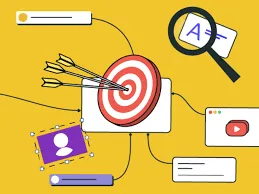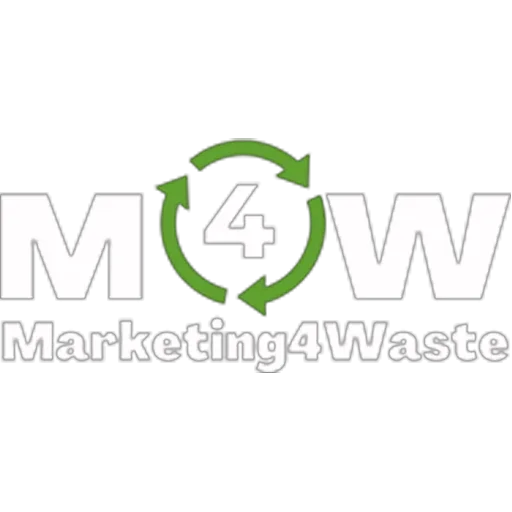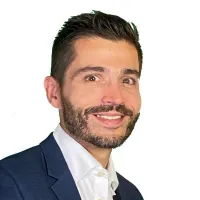Increase the Revenues of Your Waste Company With the Tips Shared in Our Blog Articles

The Power of Educational Marketing to Change The Turnover Results of Your Waste Management Company and Impact Positively Into Your Local Community
During the ClimateCon 2024 Conference in Denver, Colorado, a theme was circular economy. We both know waste management's critical role in fostering sustainable communities.
Among the innovative strategies discussed, educational marketing stood out as a transformative approach not only for boosting the turnover of waste management companies but also for creating a positive impact on local communities.
Section 1: Leveraging Educational Marketing for Effective Waste Management
Understanding Educational Marketing
Educational marketing, especially in waste management, involves creating and disseminating information to educate the public about responsible waste disposal, recycling processes, and the environmental implications of proper waste management.
This approach is essential in bridging the gap between waste management companies and the communities they serve, fostering effective waste handling, and elevating waste awareness.
Online Educational Marketing Strategies
Social Media Campaigns: Utilize platforms like Instagram, Facebook, and Twitter to disseminate educational content. Share infographics on recycling, video tours of waste management processes, and tips for minimizing waste generation.
Interactive Website Features: Develop a dedicated section on your website for educational purposes. Include FAQs about waste management, interactive guides on recycling, and a blog featuring regular posts on environmental stewardship.
Webinars and Online Workshops: Conduct online sessions with experts discussing various facets of waste management, recycling innovations, and sustainable practices. Facilitate community engagement through interactive Q&A sessions.
Email Newsletters: Regular newsletters can inform the community about new recycling methods, company-led sustainability initiatives, and ways individuals can contribute to environmental preservation.
Offline Educational Marketing Strategies
Community Workshops and Seminars: Host local events to educate residents about waste management practices. Include seminars with environmental experts, live demonstrations of recycling processes, and interactive Q&A segments.
School Programs: Partner with local schools to inculcate the importance of recycling and proper waste disposal among students. Activities could range from interactive educational sessions to field trips, recycling centers, and student-led community projects.
Printed Materials: Distribute informative brochures, flyers, and posters in community centers and public spaces. These should provide insights on recycling specific items, the necessity of waste reduction, and the broader environmental impact of effective waste management.
Local Business Partnerships: Collaborate with local businesses to amplify the message of recycling and responsible waste management. This could involve joint educational campaigns, shared informative materials, and co-hosted community events.
Integrating Online and Offline Strategies
Combining online and offline educational strategies, a synergistic approach is crucial for comprehensive community outreach.
For example, an offline seminar can be promoted via social media and supplemented with additional online resources.
Encouraging community feedback and interaction across both platforms is vital for refining educational efforts and enhancing public engagement in waste management practices.
Section 2: The Community Benefits of Educational Marketing in Waste Management
Transforming Communities through Education
Educational marketing in waste management goes beyond enhancing business turnover; it significantly impacts local communities positively. By increasing awareness and understanding of waste management, communities can see tangible improvements in their environment and quality of life. Let's delve into these benefits:
New Job Opportunities
Growth in Recycling and Waste Management Industries: As awareness and participation in recycling increase, so does the demand for service. This can lead to expanding existing waste management facilities and creating new ones, generating numerous job opportunities within the community.
Emergence of Eco-Entrepreneurship: Educated communities can spur innovative business ideas focused on sustainability. From recycling startups to eco-friendly product lines, these ventures create jobs and foster a culture of environmental entrepreneurship.
Enhanced Skill Development: Educational initiatives often lead to skill development programs where community members can learn about waste management technologies and practices, enhancing their employability in this growing sector.
Improved Quality of Life
Cleaner and Safer Neighborhoods: Effective waste management reduces littering and illegal dumping, leading to cleaner streets and public spaces. This enhances the overall aesthetic of the community and contributes to a healthier living environment.
Increased Community Engagement: Educational marketing encourages community participation in waste management. This leads to a stronger sense of community as residents work together towards a common goal of environmental stewardship.
Better Quality of Air
Reduction in Landfill Emissions: Proper waste segregation and increased recycling reduce the amount of waste going to landfills, thereby decreasing methane and other harmful emissions. This directly contributes to better air quality in the community.
Encouragement of Green Practices: As people become more educated about waste management, there's a natural shift towards greener practices like composting, which further helps reduce air pollution.
Consciousness About Waste Management
Informed Decision-Making: Education empowers community members to make informed decisions about their waste. They understand the impact of their choices and are more likely to opt for sustainable practices.
Behavioral Change: Ongoing educational efforts lead to a shift in attitudes and behaviors concerning waste disposal. People are likelier to adopt practices like recycling, reusing, and reducing waste.
Creating Waste Champions: Education nurtures environmental champions within the community who can inspire others and lead initiatives for sustainable waste management.
Through educational marketing, waste management companies can transform their business and play a pivotal role in creating vibrant, healthy, and conscious communities.
Section 3: Implementing Educational Marketing in Your Waste Management Business
Tailoring Strategies for Maximum Impact
The final step in harnessing the power of educational marketing for your waste management company involves a thoughtful implementation of these strategies.
Here's how you can integrate these practices into your business model:
Developing a Comprehensive Educational Marketing Plan
Understand Your Audience: Begin by researching your local community. Understand their concerns, interests, and behaviors related to waste management. This will help in tailoring your educational content to their needs.
Set Clear Objectives: Define what you want to achieve with your educational marketing campaign. Whether it's increasing recycling rates, reducing landfill waste, or raising awareness about sustainable practices, having clear goals will guide your strategy.
Create Engaging Content: Develop content that is informative, engaging, and accessible. Use a mix of formats like videos, infographics, blog posts, and interactive sessions to cater to different preferences.
Leverage Partnerships: Collaborate with schools, local businesses, and community organizations. These partnerships can amplify your reach and impact.
Train Your Team: Ensure that your employees understand the value of educational marketing and are trained to communicate effectively with the community.
Measure and Adapt: Regularly assess the effectiveness of your strategies. Use feedback and data to refine your approach continuously.
Overcoming Challenges
Educational marketing may present challenges like budget constraints, community apathy, or logistical hurdles.
Address these by seeking community input, leveraging digital platforms for cost-effective outreach, and continually adapting your strategies based on feedback and results.
Cultivating Long-Term Community Relationships
Remember, educational marketing is not a one-off campaign but a long-term commitment to building and nurturing relationships with your community.
It's about creating a dialogue, fostering trust, and working together towards a more sustainable future.
Conclusion
In conclusion, educational marketing presents a dynamic avenue for waste management companies to not only enhance their business performance but also make a substantial positive impact on local communities.
By adopting these strategies, your company can catalyze environmental change and community well-being.
We invite you to join us in this transformative journey.
We are here to guide you if you're ready to explore how educational marketing can revolutionize your waste management business and benefit your local community.
Book a call with us to discover more by clicking here.
Let's work together in the relaunch of your community.
All the best
Sam


© 2025 Marketing4waste - All Rights Reserved,
Marketing4Waste is a brand of MiM MarketingInterimManagers LLC
+1 801 804 5730

